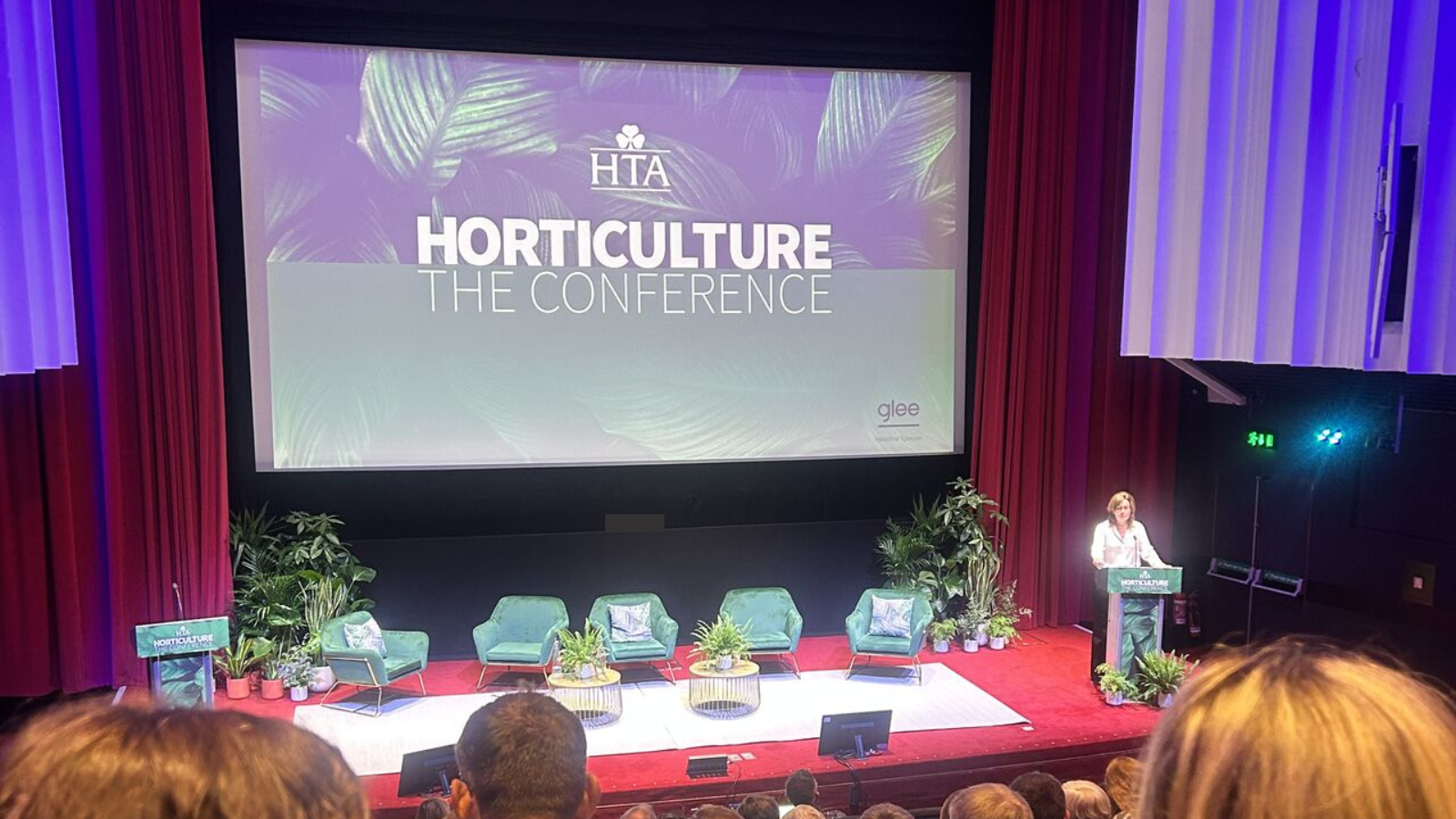.png)
Reflections From the HTA Conference 2025
Last week I attended the HTA Conference 2025, and it was incredibly thought-provoking. From AI and automation to workforce culture, sustainability, and leadership, the day gave a clear picture of both the challenges and opportunities facing UK horticulture.
Here are some of my key takeaways:
AI is here to stay.
Josh McBain set the stage with a sobering global outlook. Geopolitical tensions, inflationary pressures, and government debt now rank as the UK’s third-biggest cost, higher than education. But there was optimism, particularly around AI’s role in horticulture. Real-world examples ranged from robots scouting weeds to US start-ups autonomously tracking plant development, to humanoid robotics that can operate in existing human spaces. In the short term, “low-hanging fruit” AI applications are already paying off - things like generating product descriptions, supporting business planning, or streamlining supplier offers.
Josh said that in the longer term, by 2030, nearly 40% of UK consumer transactions could be influenced by AI.
The key message? Embrace what’s available now. Free tools and simple automation can already boost productivity. While humanoid robotics and high-tech AI machinery might not be affordable for all, accessible AI can support businesses in planning and efficiency.
The public’s appetite for green space is stronger than ever.
81% of people want more time in nature, yet fewer than 1 in 10 access it daily.
60% link time in green spaces to mental wellbeing, 56% to physical wellbeing, and 55% to community wellbeing.
There is a clear and growing demand for access to nature, something our industry can both enable and benefit from. Add to that the trend of consumers buying for “healthy ageing” (70% now say they do, according to McKinsey) and the desire for more meaningful work away from desk jobs, and it’s clear horticulture sits at the intersection of multiple societal needs.
If AI and consumer trends set the wider context, innovation on the ground is where businesses are really making their mark.
Innovation requires courage and consistency.
From Sipcam’s packaging shift (plastic bottles to pouches with 60–70% less plastic), to Westland’s new R&D facility and 45-point quality checks on every batch of growing media, it was clear that innovation requires both courage and consistency.
Westland’s mantra of “three moments of truth” was something that really stood out to me:
· Does it communicate what it should?
· Does it look and feel right?
· Does it work?
It’s a useful framework for any grower or supplier, and even resonated with my job. Westland also highlighted that change is cultural; you need to inspire and educate your people and be willing to fail along the way.
Growth with purpose: Forestart’s story
Dave Richardson shared how Forestart evolved from a small tree seed supplier into a company with its own breeding, R&D, and 400+ varieties across forestry, housing, and infrastructure. Their £1.1m investment in a new site was driven not just by growth (they’re five times bigger than 20 years ago) but by a desire to own their future. What stood out most was their commitment to people. From sponsoring PhDs to supporting long-term unemployed hires and building careers for ambitious young people. It was a reminder that talent is the true engine of growth in horticulture.
I caught Dave after and asked what was working for him, and his answer centred around culture and giving his team a voice. He recognises that everyone operates differently, has different motivations (some people don’t want overtime, some people want to get a promotion, etc) and learning styles. Personally, it was incredibly refreshing to see a leader with this mindset.
Leadership is everything.
Throughout the day, several speakers circled back to what makes great leaders. Common threads included:
· Stick to your beliefs and values.
· Be direct and ensure people are on board with you.
· Get comfortable “working in the grey”.You don’t know what you don’t know.
The final panel, which consisted of Alan Roper (Blue Diamond), Natalie Boynton (Happy Plants) and Colin Stephens (Evergreen), ended the conference on a really positive note. Great people stay with great leaders. In an industry where wages can’t always compete, adding value to employees in other ways, through culture, opportunity, and recognition, is non-negotiable. Evergreen’s business value of “Do the right thing” summed this up perfectly.
Final thoughts
For me, the HTA Conference 2025 highlighted that while the pressures on our sector are real, the opportunities are greater. Joining together, having a voice that the government can’t ignore, is crucial. If we lean into technology, nurture our people, and stay true to our values, horticulture won’t just survive these shifts; it will thrive as a sector delivering productivity, wellbeing, and purpose.
I left the Barbican feeling optimistic and inspired, and I’m already looking forward to seeing how these conversations shape the year ahead.
